Select Language

By Simon Jessop, Karin Strohecker and Katy Daigle
BAKU (Reuters) - The Asian Development Bank will increase its climate-related lending by up to $7.2 billion after the United States and Japan agreed to underwrite risk for some existing loans, an ADB executive said, marking the first ever sovereign guarantees for climate finance.
The new strategy, shared exclusively with Reuters, offers a potential template for other development banks to follow as the U.N.'s COP29 climate summit in Baku, Azerbaijan, starting this week focuses on ramping up the amount of finance available to developing nations.
The ADB has set a long-term cumulative climate finance lending target of $100 billion between 2019 and 2030. In 2023, it lent $9.8 billion.
The U.S. election victory last week of Donald Trump, who has vowed to remove the United States from the Paris Agreement on climate, has overshadowed the start of the Baku talks, adding pressure on Europe and China to help get a strong result, negotiators said last week.
Under the ADB plan, the world's richest country would guarantee up to $1 billion of existing loans from Asia's top development institution, while Japan would underwrite $600 million – freeing the bank to lend more for climate-related projects.
"The structure is a fantastic way of extending a multilateral development bank's (MDB) lending capacity without going through the politically difficult situation of a general capital increase," which would need to come from fresh country donations, Jacob Sorensen, director of partner funds at the ADB, told Reuters.
An ADB spokesperson declined to comment on whether the deals, which were finalised last week, would be affected by the incoming Trump administration.
The extra lending headroom the guarantees generate will be deployed over the next five years, while the duration of the guarantees themselves will be 25 years, according to the ADB.
COOKING OIL TO JET FUEL
One of the first beneficiaries from this new ADB push will be a project in Pakistan to generate sustainable aviation fuel from cooking oil, Sorensen said. About half of the $90 million needed would come from the ADB scheme with the deal expected to be signed on Nov. 20, the bank said.
The ADB, based in the Philippines, has spent three years developing the guarantee deal with a group of Western governments and hopes other countries will follow soon, he added.
It has also been sharing its experience with the World Bank, Inter-American Development Bank and European Investment Bank as part of broader, collaborative efforts to scale up climate-related lending.
"We have been extensively in consultation with multiple other MDBs," Sorensen said.
While the deals mark the first use of sovereign guarantees for climate finance, they have previously been used to fund other areas of lending such as education.
Public lending institutions have also begun to guarantee other, third-party investments for climate projects. Earlier this year, the World Bank launched a platform to house all such guarantees for loans and investments from across the various branches of the organisation, in an effort to expand their use.
The programme was going "very well", having guaranteed more than $10 billion through the programme in 2023 with a goal of doubling that annual figure by 2030, Axel van Trotsenburg, the bank's senior managing director told Reuters last month in Washington.
As climate change increases the threat of extreme weather and disaster worldwide, developing countries are forecast to need more than $2 trillion a year by 2030 to transition to clean energy and prepare for the conditions of a warmer planet.
Rich nations are hoping that a financing deal at COP29 goes beyond relying on donations from them for climate finance, and instead looks to development banks as well as private investors for the bulk of the world's climate cash.
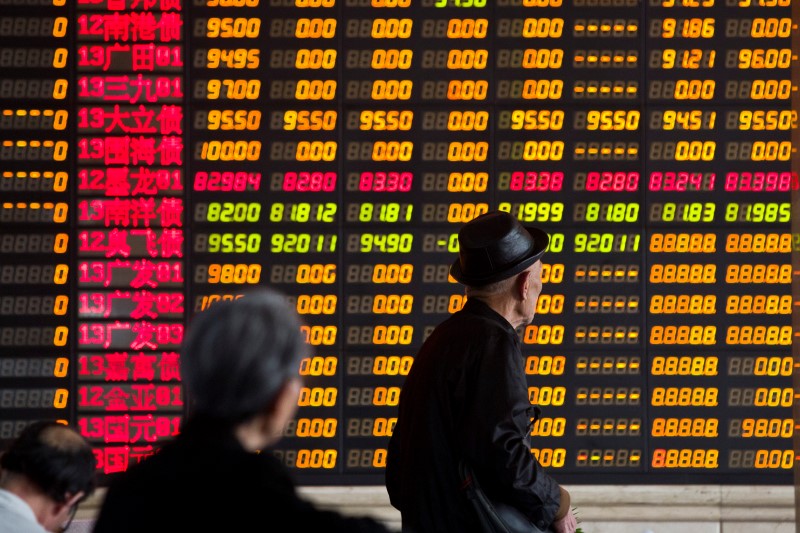
Investing.com-- Most Asian stocks fell on Monday (NASDAQ:MNDY) as fresh fiscal stimulus from China largely underwhelmed, while data over the weekend showed deflation in the country remained in play.
Regional markets brushed off a strong lead-in from Wall Street, which rose on Friday and remained at record highs amid persistent optimism over a Donald Trump presidency.
U.S. stock index futures rose in Asian trade, with focus turning to upcoming inflation data and a slew of Federal Reserve speakers this week.
Chinese stocks dip as fiscal stimulus underwhelms
China’s Shanghai Shenzhen CSI 300 and Shanghai Composite indexes fell 0.6% and 0.2%, respectively, while Hong Kong’s Hang Seng index slid 2.4% and was the worst performer in Asian markets.
Investors were mostly underwhelmed by China’s National People’s Congress announcing about 12 trillion yuan ($1.6 trillion) in a debt swap program to improve the finances of local governments.
But a lack of direct fiscal stimulus and targeted measures to improve the housing market and personal consumption left investors wanting, especially as data over the weekend showed Chinese deflation persisted in October.
Chinese consumer price index inflation grew at a slower pace last month, while producer price index inflation shrank for a 25th consecutive month.
Analysts at ANZ said the lack of direct stimulus was likely to accommodate any potential headwinds from a change in U.S. administration, after Trump’s victory. Trump has vowed to impose steep trade tariffs on China, which bodes poorly for the country.
This notion had also weighed on Chinese markets over the past week.
Japanese stocks pressured by BOJ rate hike uncertainty
Japan’s Nikkei 225 and TOPIX indexes fell about 0.3% each, weighed by uncertainty over interest rates after the summary of opinions of the Bank of Japan’s October meeting showed policymakers split over when to hike interest rates.
The BOJ had kept rates steady in October after hiking them twice earlier this year, as the bank saw a virtuous cycle of higher wages and inflation.
But the bank’s plans for more rate hikes were clouded by heightened political uncertainty, after a coalition led by Japan’s ruling Liberal Democratic Party lost its parliamentary majority.
Still, Governor Kazuo Ueda signaled at the October meeting that interest rates were still set to rise eventually.
Broader Asian markets retreated as weakness in China spilled over. Australia’s ASX 200 fell 0.5%, as the country’s exposure to China weighed.
South Korea’s KOSPI fell 0.9%, weighed by losses in technology stocks.
Futures for India’s Nifty 50 index pointed to a flat open, as the index languished near three-month lows. Indian stocks were walloped by heavy foreign capital outflows over the past month.
Indian CPI inflation data is due on Tuesday.

Investing.com-- Bitcoin briefly hit a record high above key levels on Sunday evening, extending a stellar run of recent gains after Donald Trump was elected as the U.S. president, sparking hopes of friendlier crypto regulation.
Bitcoin rose nearly 6% to a record high of $81,373.5, before settling around $80,362.9 by 18:16 ET (23:15 GMT).
The world’s largest cryptocurrency, along with broader crypto markets, have been on a tear since Trump’s election victory last week. The president-elect had vowed to make the U.S. the “crypto capital” of the world.
Bitcoin had surged some 10% over the past week, and was trading up 91% so far in 2024.
World no.2 crypto Ether rose 1.8% to $3,190.0- a three-month high.

Investing.com -- After a historic week for markets in the wake of Donald Trump's resounding win in the U.S. presidential election investors will be turning their attention to inflation numbers for indications on how the economic outlook may begin to shift in the light of election results. Market participants will also get a chance to hear from several Federal Reserve officials after last week’s rate cut. Here's your look at what's happening in markets for the week ahead.
1. CPI
Investors will be closely watching Wednesday’s U.S. inflation data for October, as markets wait to see if president-elect Trump will push ahead with economic policies that could be inflationary.
Economists expect the consumer price index to have risen at an annual rate of 2.4% in October, matching September’s pace. September's annual increase was the smallest in more than three-and-a-half years, reinforcing Fed rate-cut bets.
But the central bank may have been thrown a curveball with Trump's election, since many believe that his proposals, in particular higher tariffs, could push up consumer prices. Following the Fed's 25 bps rate cut on Thursday, Chair Jerome Powell gave little guidance on how fast and far rates will now fall.
2. Market rally to face inflation test
Market watchers will be waiting to see whether this week’s inflation numbers will help sustain the record-breaking stock rally that has received a boost from Trump's election win.
The benchmark S&P 500 surged to an all-time high and hit the 6,000 level for the first time on Friday, as expectations of tax cuts and looser regulations under Trump boosted risk appetite.
A reassuring economic outlook from the Fed, which delivered a widely expected 25 basis point rate cut on Thursday, also helped boost sentiment.
The central bank's ability to keep cutting rates, however, will be tested by whether incoming data shows inflation continuing to moderate.
3. Fedspeak
Investors will get a chance to hear from several Fed officials this week, starting with Governor Christopher Waller on Tuesday. Richmond Fed President Thomas Barkin and Philadelphia Fed president Patrick Harker are also due to make appearances the same day.
Markets will likely pay closer attention to officials speaking after Wednesday’s inflation numbers, starting on Wednesday with Dallas Fed president Lorrie Logan, St. Louis Fed president Alberto Musalem and Kansas City Fed president Jeff Schmid.
Fed Chair Jerome Powell is to deliver what will likely be closely watched remarks on Thursday. Meanwhile, New York Fed president John Williams will cap off the week's speaking docket later the same day at NY Fed event on "Making missing markets".
4. Bitcoin hovering near $80,000
Bitcoin is on the verge of reaching $80,000 for the first time, boosted by expectations that Trump will roll out more crypto-friendly regulations.
The world’s largest cryptocurrency hit a record high of $79,692 overnight Sunday and was trading at $79,333.50 as of 5:13 ET (10:13 GMT).
During his campaign, Trump vowed to make the U.S. the “crypto capital” of the world by creating a strategic Bitcoin stockpile and appointing friendlier regulators.
He has emerged from last Tuesday’s election in a stronger than expected position with his Republican Party in control of the Senate and on the verge of holding a narrow majority in the House.
Bitcoin was also bolstered after Jay Powell said Thursday that the Fed's path was unchanged in the face of near-term political changes in the U.S.
His comments helped spur gains across most risk-driven assets, including crypto.
5. Oil prices
Oil prices fell on Friday as China’s latest package of stimulus measures left energy traders underwhelmed, but despite the losses still managed to notch up a weekly gain.
U.S. crude futures settled at $70.35 per barrel, down by 2.7%. Global benchmark Brent crude futures fell by 2.3% to $73.87 per barrel.
Chinese authorities announced a package easing debt-repayment strains for local governments, but analysts said the measures will do little to directly target demand. Deflationary pressures on the Chinese economy have been a heavy drag on oil prices this year.
But prices still ended the week higher amid expectations for tighter sanctions on Iran and Venezuela under the incoming Trump administration, which could cut oil supply to global markets.
Prices also received a boost from Thursday’s Fed rate cut. Interest rate cuts typically boost economic activity and energy demand.
--Reuters contributed reporting

TOKYO (Reuters) -Nissan Motor shares slumped as much as 10% in Tokyo trade on Friday, a day after the Japanese automaker said it would cut 9,000 jobs and 20% of its manufacturing capacity as it struggles with sales in China and the United States.
The stock was on track for its biggest one-day price drop since August. It last traded down 6.5% at 383.5 yen, just above a four-year low.
Japan's third-biggest automaker on Thursday slashed its full-year operating profit forecast by 70% and scrapped its net forecast altogether due to restructuring, which it said would cut costs by 400 billion yen ($2.61 billion) in the financial year to March-end.
Like many global automakers, Nissan (OTC:NSANY) is struggling in China where BYD (SZ:002594) and other domestic rivals are winning market share with affordable electric vehicles and petrol-electric hybrids equipped with advanced software.
Nissan is also challenged in the U.S. where it lacks a line-up of hybrids just as that vehicle type is in strong demand.
CEO Makoto Uchida said on Thursday Nissan had not foreseen hybrids' sudden popularity in the U.S. and that demand for revamped versions of core models had not been as strong as hoped.
Nissan's restructuring is the latest chapter in a long-running attempt to revitalise its business, having never fully recovered from the 2018 ousting of former Chairman Carlos Ghosn and scaling back of its partnership with Renault (EPA:RENA).
On Friday, Minister of Economy, Trade and Industry Yoji Muto declined to comment to reporters when asked his views on potential government support for Nissan.
Tokai Tokyo Intelligence Laboratory analyst Seiji Sugiura placed much of the blame for Nissan's U.S. hybrid situation on management that he said was mainly pinning hope on selling new EV and traditionally powered models.
"The company released its mid-term plan this spring, but it in the end there was no meaning to that. I think their understanding of the situation is completely wrong," Sugiura said.
Nissan's mid-term plan announced in March involved 30 new models over the next three years, raising global sales by 1 million vehicles, an operating profit margin exceeding 6% by the end of fiscal 2027 and total shareholder returns of more than 30%.
($1 = 153.2000 yen)
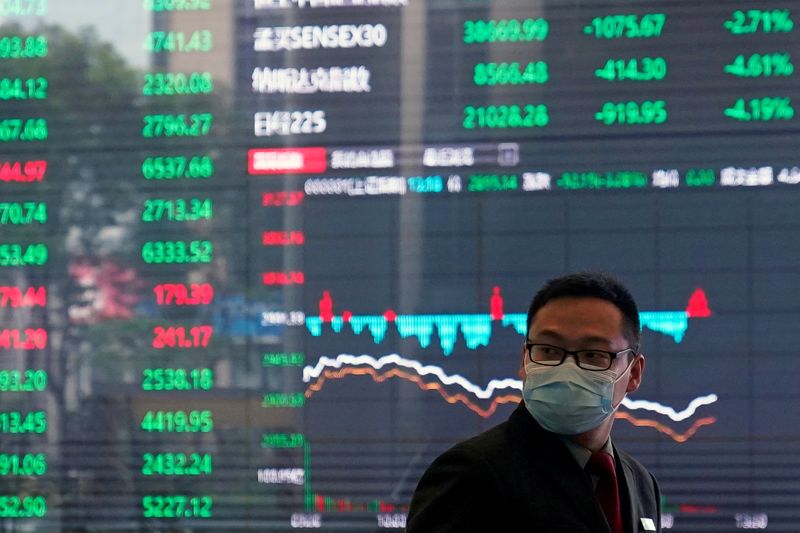
Investing.com-- Most Asian stocks rose on Friday, tracking strength in Wall Street after the Federal Reserve cut interest rates as expected, while anticipation of more fiscal stimulus in China also buoyed local markets.
Regional markets took positive cues from a record-high close on the S&P 500 and the NASDAQ Composite, as markets were encouraged by the Fed signaling that it did plan to cut interest rates further, amid progress in bringing down inflation.
Risk appetite also remained upbeat after Donald Trump won the 2024 presidential election earlier this week, although the implications of a Trump presidency for Asia were still potentially negative, given his plans to enact more protectionist trade policies.
U.S. stock index futures were flat in Asian trade.
Chinese stocks rise with NPC set to deliver fiscal stimulus
China’s Shanghai Shenzhen CSI 300 and Shanghai Composite indexes rose 0.4% and 0.6%, respectively, while Hong Kong’s Hang Seng index added 0.6%.
Mainland Chinese stock indexes were the best performers this week despite concerns over a Trump presidency. The CSI 300 and the SSEC were up nearly 7% each this week.
Focus was squarely on a meeting of the Standing Committee of the National People’s Congress, which is set to conclude later on Friday. The NPC is widely expected to outline plans for more fiscal spending.
Analysts expect at least 10 trillion yuan ($1.6 trillion) in additional spending over the coming years, as Beijing struggles to shore up slowing economic growth.
A second Trump presidency is also expected to see Beijing roll out more stimulus, JPMorgan analysts wrote in a recent note. Trump has vowed to impose a 60% tariff on all Chinese imports, heralding more economic headwinds for China.
Beijing had outlined a slew of monetary and fiscal measures over the past month, aimed at supporting the economy. But a lack of clear details on their scale and timing had left markets wanting.
Asian stocks upbeat, head for weekly gains
Most Asian markets drifted higher on Friday, and were set for weekly gains in one of the most important weeks of the year.
Japan’s Nikkei 225 and TOPIX indexes were muted on Friday, but were up nearly 4% apiece this week. Japanese stocks rallied as the yen weakened sharply against the dollar, although it found some stability on Friday after the Fed’s rate cut.
Australia’s ASX 200 rose 0.9% and was close to a record high. The index was also set to add 2.3% this week, amid some positive earnings.
South Korea’s KOSPI rose 0.7% and was set to rise 1.7% this week, as local technology stocks tracked strength in their U.S. peers.
Indian stocks lagged this week, with the Nifty 50 trading down 0.4% this week. Indian markets were walloped by sustained foreign capital outflows through the past month, amid a heavy dose of profit-taking and as investors pivoted into Chinese markets.
Regional markets reacted positively to Trump’s election win, given that it cleared a major point of uncertainty for markets. This risk-on sentiment was furthered by the Fed's rate cut on Thursday, with the central bank also flagging strength in the U.S. economy.
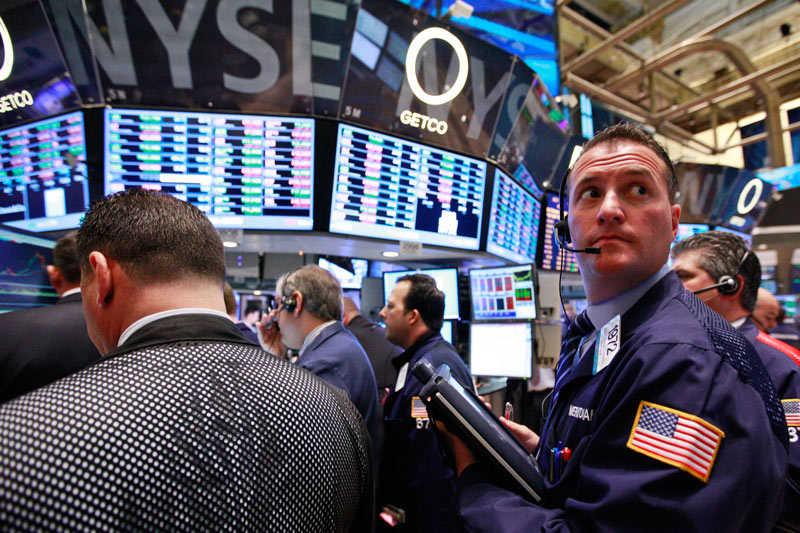
Investing.com-- U.S. stock index futures steadied in evening deals on Thursday after a second day of record highs on Wall Street, as markets digested the Federal Reserve’s outlook on future rate cuts.
Wall Street remained heady after Donald Trump won the 2024 presidential election earlier this week, opening the door for more potentially expansionary policies in the coming years.
A drop in the dollar and Treasury yields benefited markets, as did a swathe of positive earnings.
S&P 500 Futures steadied at 6,006.0 points, while Nasdaq 100 Futures fell slightly to 21,216.25 points by 18:20 ET (23:20 GMT). Dow Jones Futures were flat at 43,933.0 points.
Fed cuts rates by 25 bps, flags cautious outlook on future easing
The Fed cut its benchmark rate by 25 basis points to a range of 4.5% to 4.75% on Thursday, as widely expected.
Fed Chair Jerome Powell said the results of the presidential election would have no near-term impact on monetary policy.
But Powell reiterated that the Fed will maintain a data-driven approach to further easing, although he did note that inflation was cooling in line with the Fed’s outlook, while economic growth remained healthy.
Powell also said that he would serve as the Fed chief until the end of his term in 2026.
Powell’s comments on the economy offered some bullish cues to markets, helping quell concerns over a slowdown in growth in the coming months. But it still remained unclear just how much further interest rates will fall, and what a neutral rate will look like, although Powell had earlier said the neutral rate would be relatively higher.
Traders were seen pricing in a 76.1% chance the Fed will cut rates by another 25 basis points in December, and a 23.9% chance rates will remain unchanged, CME Fedwatch showed.
Wall St extends gains after Trump victory
Wall Street indexes were mostly upbeat on Thursday, extending recent gains after Trump’s victory sparked a rally earlier in the week.
The S&P 500 rose 0.7% to a record high of 5,973.10 points, while the NASDAQ Composite rose 1.5% to a record high of 19,269.36 points. The Dow Jones Industrial Average lagged, ending flat at 43,729.34 points, although it remained in sight of a record high.
Trump’s victory came amid signs of a Republican sweep of both levels of Congress, presenting few hurdles to the 47th President in enacting major policy reform.
Trump is expected to enact looser fiscal policy, while his protectionist stance on trade and immigration is expected to benefit the dollar.

WASHINGTON (Reuters) -U.S. mortgage rates increased to a four-month high this week and could rise further amid fears that President-elect Donald Trump's proposed economic policies could stoke inflation.
The average rate on the popular 30-year fixed-rate mortgage climbed to 6.79%, the highest level since July, from 6.72% last week, mortgage finance agency Freddie Mac (OTC:FMCC) said on Thursday.
It has increased for six straight weeks and has risen by 71 basis points since late September.
As supply remains below pre-pandemic levels, rising mortgage rates and elevated house prices have combined to stifle sales of previously owned homes, which hit a 14-year low in September.
"Buyers who were waiting until after the election to get into the market may not see rates as low as they had hoped," said Lisa Sturtevant, chief economist at Bright MLS.
The 30-year fixed mortgage rate tracks the benchmark 10-year Treasury note, whose yield jumped to a four-month high in the aftermath of Republican Trump's victory in the U.S. presidential race. Trump campaigned on a platform of tax cuts, which economists say would juice the economy, widen budget deficits and increase government borrowing.
He also promised to impose a 60% tariff on Chinese goods and at least a 10% levy on all other imports, which economists expect to re-ignite inflation and reduce the Federal Reserve's scope to cut interest rates.
Most home owners have mortgage rates below 4% and the so-called "rate lock" is starving the market for previously owned homes of supply. Bright MLS estimated that the median monthly payment on a mortgage to buy a $400,000 home has increased by almost $200 in just six weeks.
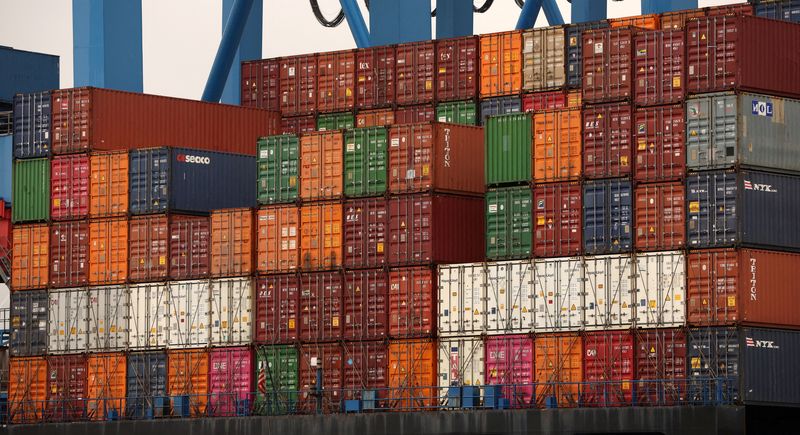
By Maria Martinez
(Reuters) - German exports and industrial output fell more than expected in September, showing the weakness of two of the pillars of the German economic model at the start of the fourth quarter.
Exports fell by 1.7% in September compared with the previous month, data from the federal statistics office showed on Thursday.
The result compared with a forecast 1.4% decrease in a Reuters poll.
A second presidency of Donald Trump, who has vowed a 10% tariff on imports from all countries, bodes ill for German industry and exports.
Germany would be the big loser if a Trump presidency sparked a tit-for-tat trade war between the United States and Europe, with Germany's previously much-envied industrial strength potentially becoming an acute vulnerability.
Industrial output fell by 2.5% on the month in September, data from the federal statistics office showed.
This compared with a forecast of a 1.0% decline in a Reuters poll.
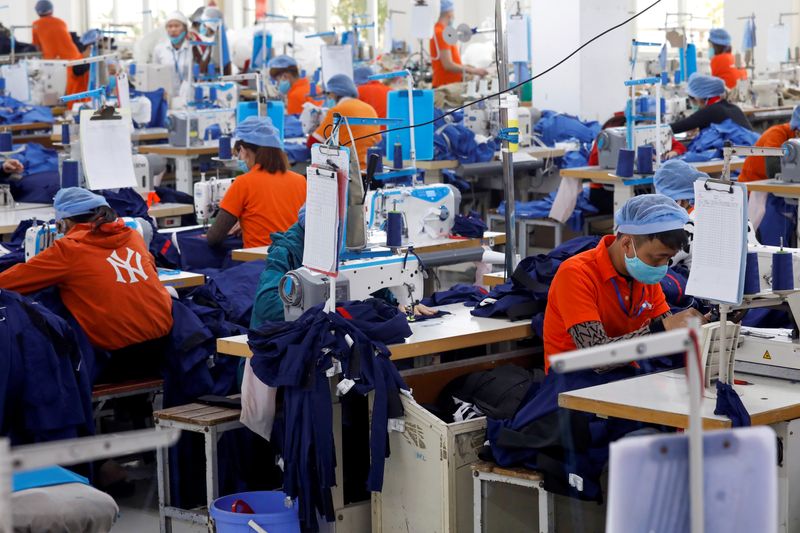
By Francesco Guarascio and Phuong Nguyen
HANOI (Reuters) - Vietnam faces trade volatility with a new Trump presidency, officials and supply chain experts told Reuters, as the country could benefit from increased U.S.-China trade tensions but may also become "collateral damage" of U.S. protectionist measures.
The Southeast Asian industrial hub is a major exporter to the United States and had a 90-billion-dollar trade surplus with Washington as of September, the fourth largest after China, the European Union and Mexico.
The Communist-run country has been a top beneficiary of a hike in U.S. tariffs on China, which Donald Trump started in his first presidency.
Trump has threatened to impose 60% tariffs on U.S. imports of Chinese goods in his second presidency, which would pose major growth risks for the world's second-largest economy.
However, ahead of the U.S. elections Vietnamese officials said they would had preferred an expected status quo in trade policy under another Democratic president, rather than Trump's unpredictability, two senior officials said.
The main reason for concern, officials said, is the big trade surplus with Washington, which is partly the result of Vietnam being used as an assembling site for components still largely made in China - which occasionally has led to U.S. sanctions over illegal transhipment.
Trump has also threatened tariffs up to 20% for all imports.
Vietnam "could easily be a target for such protectionist measures and become collateral damage", said Leif Schneider, head of international law firm Luther in Vietnam.
Vietnam's main stockmarket rose on Wednesday on news of a possible Trump win, driven by stocks of industrial parks, and extended its gains on Thursday morning.
LNG, PLANES, GOLF DIPLOMACY?
The large trade surplus could be reduced to ease tensions with the U.S. with purchase of big-ticket items from the United States, a senior Hanoi-based diplomat noted, pointing at imports of Liquified Natural Gas (LNG) and the possible purchace of Lockheed Martin (NYSE:LMT) C-130 Hercules military transport.
It may also help that The Trump Organization has recently partnered with a Vietnamese company to develop a $1.5 billion golf course and hotel project in Vietnam, a Vietnam-based foreign investor said.
However, uncertainty prevails, as the new Trump administration "presents both opportunities and challenges for Vietnam," said Koen Soenens, marketing director at DEEP C industrial parks in northern Vietnam.
"While a second Trump presidency is expected to recalibrate American trade policy, the actual impact on Vietnam would heavily depend on the specific scope and targets of those policy changes," said Dan Martin, a Hanoi-based business advisor with investment consultancy Dezan Shira & Associates.
"The potential for Vietnam to attract more companies relocating from China remains strong, yet tariffs and trade restrictions may jeopardize these gains," Schneider added.
However, additional protectionism could accelerate the shift of supply chains from China to other markets, with Vietnam likely remaining a preferred destination for companies relocating production outside of China, Schneider added.

